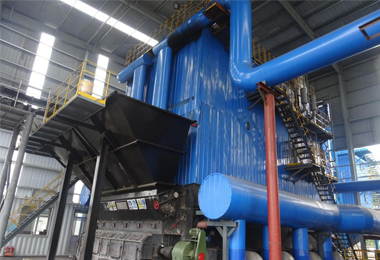
Nov . 08, 2024 12:12 Back to list
Essential Chemicals for Optimizing Steam Boiler Performance and Efficiency
Understanding Steam Boiler Chemicals Importance and Applications
Steam boilers are essential components in many industrial processes, providing steam for heating, power generation, and various other applications. However, maintaining the efficiency and longevity of these systems requires careful management of water quality and the use of appropriate chemicals. This article explores the significance of steam boiler chemicals, their functions, and the best practices for their use.
The Role of Water in Steam Boilers
Water quality is crucial for steam boilers since impurities can lead to problems such as scaling, corrosion, and foaming. Scaling occurs when minerals precipitate out of water, leading to a buildup on the boiler's heating surfaces. This reduces heat transfer efficiency and can cause overheating and damage. Corrosion, on the other hand, can result from oxygen or other corrosive substances in the water, leading to leaks and structural failures. Foaming can produce steam with excessive water content, which can damage steam lines and turbines.
Types of Steam Boiler Chemicals
To combat these potential issues, a variety of chemicals are used in steam boiler systems
1. Water Treatment Chemicals These are essential for conditioning feedwater to prevent scaling and corrosion. Common water treatment chemicals include - Sodium Sulfite Used to remove oxygen from water, preventing corrosion caused by oxygen pitting. - Phosphates Help to control scaling by forming soluble compounds with calcium and magnesium. - Amines Used to neutralize acidity and inhibit corrosion, especially in steam condensate return systems.
2. Scale Inhibitors These chemicals prevent the formation of scale by dispersing mineral content in the water. They work by increasing the solubility of calcium and magnesium, reducing their likelihood of precipitating out of solution.
3. Corrosion Inhibitors These chemicals create a protective layer on boiler metal surfaces, preventing corrosive elements from causing damage. Many corrosion inhibitors are formulated to target specific types of corrosion, such as pitting or galvanic corrosion.
4. pH Adjusters Maintaining the correct pH level is critical for preventing corrosion and scaling. Chemicals like sodium hydroxide or ammonium hydroxide can adjust the pH to optimal levels.
steam boiler chemicals

5. Defoamers In boilers, excessive foam can hinder steam production and heat transfer. Defoamers work to reduce foam formation, ensuring smoother operation.
Best Practices for Chemical Use
To ensure the effective use of steam boiler chemicals, several best practices should be followed
- Regular Testing Regular sampling and testing of boiler water is essential to monitor chemical concentrations and water quality. Parameters such as pH, conductivity, oxygen levels, and hardness must be regularly checked.
- Dosage Control Chemicals should be added in precise amounts based on the specific water conditions and the chemistry of the boiler system. Overdosing can lead to adverse effects, while underdosing may not provide sufficient protection.
- Compliance with Regulations It’s vital to ensure that the chosen chemicals comply with industry regulations and environmental standards. This helps in maintaining safety and sustainability.
- Training Personnel Training operators in the proper handling and application of boiler chemicals is essential. This ensures effective management of boiler operations and enhances safety in the workplace.
Conclusion
Steam boiler chemicals play a pivotal role in enhancing the efficiency, safety, and lifespan of boiler systems. By understanding the functions and importance of these chemicals, industries can effectively control corrosion and scaling, leading to reduced downtime and maintenance costs. Proper monitoring and application are key to optimizing the performance of steam boilers, ensuring they serve their purpose efficiently in various industrial applications. Ultimately, investing in proper water treatment and chemical management not only protects the equipment but also contributes to overall operational success.
-
High-Efficiency Commercial Oil Fired Steam Boiler for Industry
NewsJul.30,2025
-
High-Efficiency Biomass Fired Thermal Oil Boiler Solutions
NewsJul.30,2025
-
High Efficiency Gas Fired Thermal Oil Boiler for Industrial Heating
NewsJul.29,2025
-
High-Efficiency Gas Fired Hot Water Boiler for Sale – Reliable & Affordable
NewsJul.29,2025
-
High Efficiency Biomass Fired Hot Water Boiler for Industrial and Commercial Use
NewsJul.29,2025
-
High-Efficiency Biomass Fired Hot Water Boiler for Industrial Use
NewsJul.28,2025
Related PRODUCTS






















